A maintenance gantry is a bridgelike framework used as a working platform to reach for the roof surfaces that would otherwise be difficult or impossible to reach safely. When used in public buildings where aesthetics is important, the gantry will be designed to blend into the surrounding.
Similar framework designs are in gantry cranes in factories and highway signs (which are also called gantries). This blog will focus on the glass roof and atrium access and different applications for such gantries.
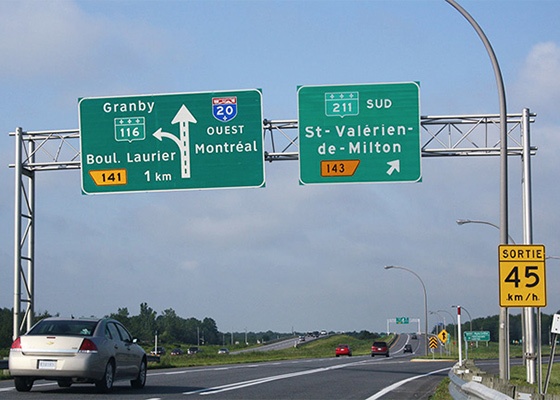 |
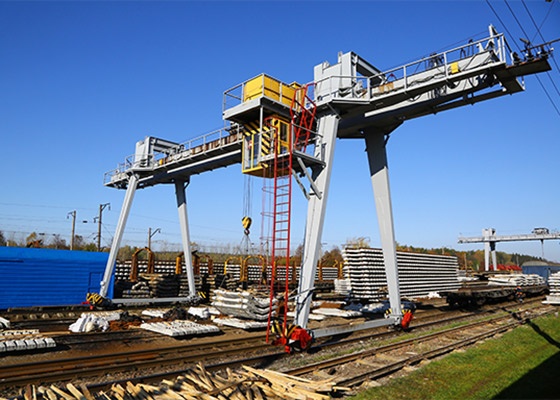 |
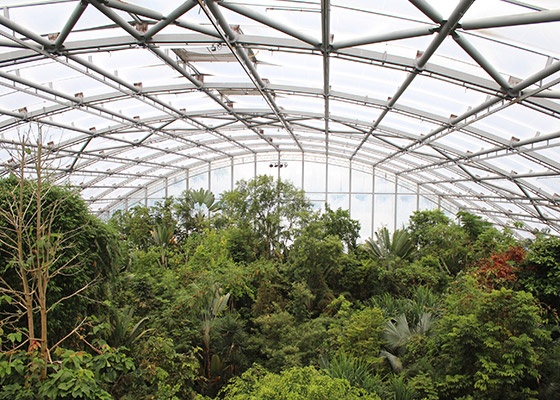 |
| Overhead sign (gantry) on highway | Industrial Gantry Crane | Maintenance Gantry in a Zoo |
Maintenance gantries - safe and easy access
There are many names for gantries, typically they are called “maintenance gantries”, or “access gantries”, “service gantries” and sometimes “access platforms”. All these names describe the use of a gantry really well. The gantry is used to take care of different parts of a construction. One of the most typical uses for a gantry is to access the inside or outside of glass roofs, the atria, or skylights. Another way to access glass roofs from below would be using a hydraulic access platform/lift (or Mobile Elevated Work Platform, MEWP). However, using a mobile lift during the opening hours of an office or shopping mall is not usually accepted and the lift needs to be moved around every time to access a new position. Often there is no or very limited floor space available for a ground-up machine and then the gantry is the only option. In reality, shopping malls are full of small kiosks etc. that were not shown on the original drawings.
The gantries are designed to travel along aluminium tracks, with manual or motorized trolleys making it easy and efficient to access the whole roof area. The gantry is not only used for cleaning the glass roof, it is also used to maintain the sprinklers and other similar technical maintenance tasks and for hanging seasonal and advertising decorations. In shopping malls, it is even used to collect a run-away balloon from the ceiling.
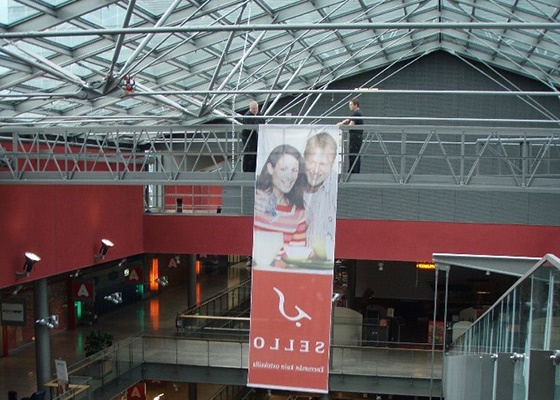 |
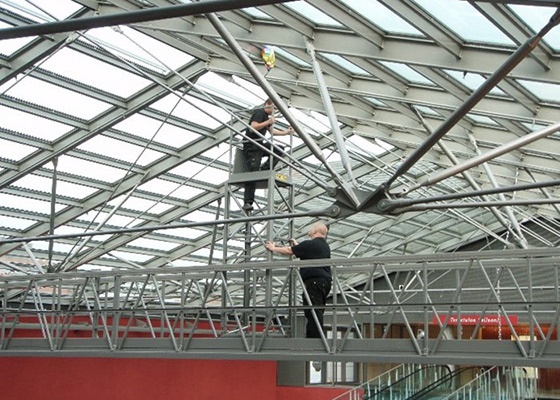 |
| Hanging an advertisement on a gantry | Getting a balloon from the ceiling |
Similarities with inclined ladders
When the gantries are used above the roof, it is easy to confuse them with inclined ladders. The difference between a gantry and a ladder is that you walk along a gantry and climb up ladders. To be more precise the ladders have small rungs or steps to stand on and the steps are non-overlapping.
The gantries however have closed floor or overlapping steps. For a glass roof access a gantry is most often the recommended option. As the steps are overlapping, or there is a closed floor it is not possible to fall from the roof. Also the gantries are more stable, which provides safety for the worker. As the gantry is more stable, it is heavier. However, for some roofs the lighter ladder is the only option. The ladder is also a cheaper option, but most often you should pay more for better quality and safety.
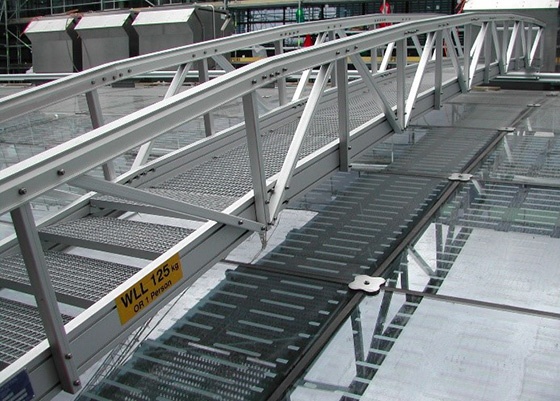 |
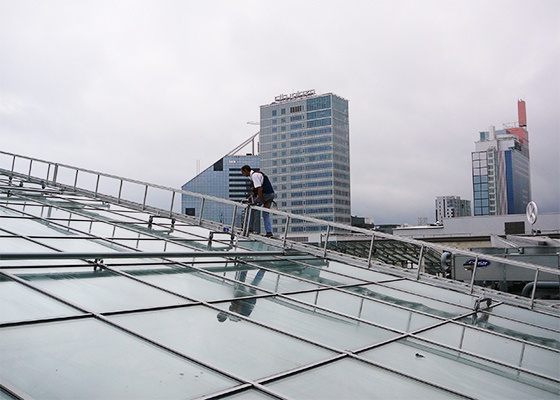 |
| Strong gantry above a glass roof | Light inclined ladder |
The gantries can be designed for different applications
It is possible to modify the gantry in almost every way. In the simplest form the gantry is just a straight bridge. To make the gantry as invisible as possible and to access the whole roof it can be designed to follow any roof shape. The gantry can also have a telescopic extension if the area to access is not uniform. As seen in the picture above, where the serviceman is getting the balloon, the gantry can be equipped with a tower to reach places that would be too high from the gantry floor level. Finally, it is possible to equip the gantry with a BMU cradle. The cradle is suspended from the bottom of the gantry and it can be then used to access even the interior facades or places within the atrium void.
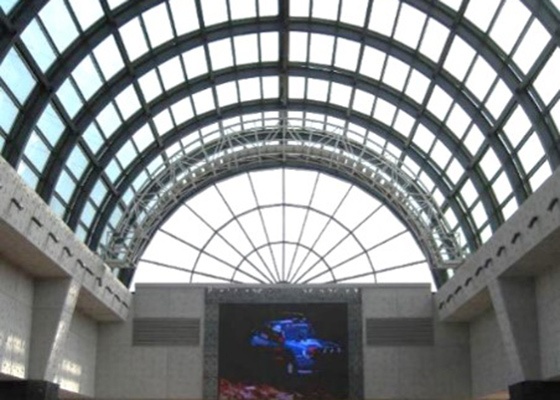 |
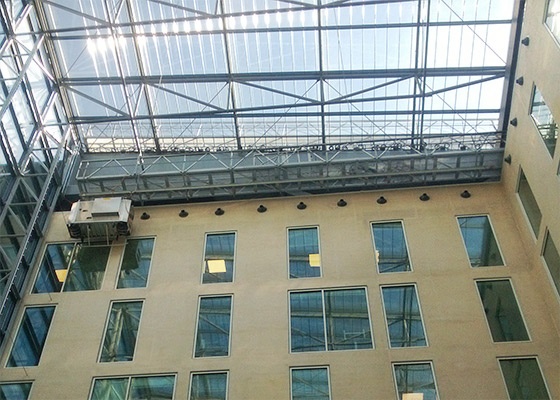 |
| Curved gantry blending into the roof structure | Gantry with a BMU cradle |
Do you need help choosing the right type of a gantry? Contact us and our designers will guide you to choose the best possible solution for you. Also, download the datasheet from below.


